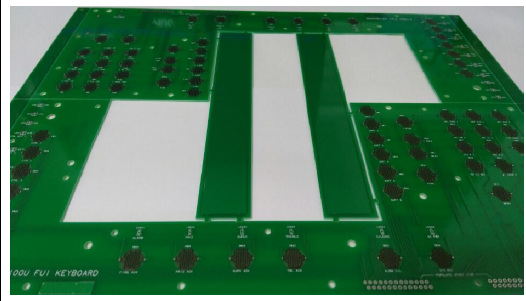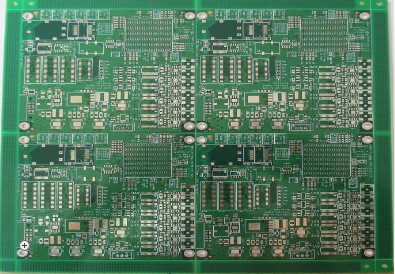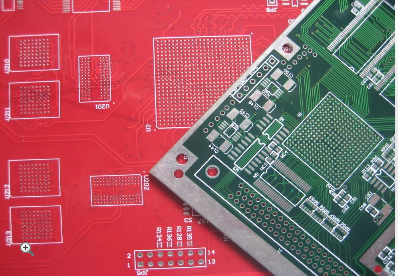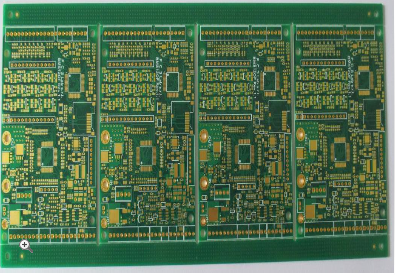-
 Agriculture
Agriculture
-
 Health-Care
Health-Care
-
 Environment
Environment
-
 Construction-Real-Estate
Construction-Real-Estate
-
 Tools-Hardware
Tools-Hardware
-
 Home-Garden
Home-Garden
-
 Furniture
Furniture
-
 Luggage-Bags-Cases
Luggage-Bags-Cases
-
 Medical-devices-Supplies
Medical-devices-Supplies
-
 Gifts-Crafts
Gifts-Crafts
-
 Sports-Entertainment
Sports-Entertainment
-
 Food-Beverage
Food-Beverage
-
 Vehicles-Transportation
Vehicles-Transportation
-
 Power-Transmission
Power-Transmission
-
 Material-Handling
Material-Handling
-
 Renewable-Energy
Renewable-Energy
-
 Safety
Safety
-
 Testing-Instrument-Equipment
Testing-Instrument-Equipment
-
 Construction-Building-Machinery
Construction-Building-Machinery
-
 Pet-Supplies
Pet-Supplies
-
 Personal-Care-Household-Cleaning
Personal-Care-Household-Cleaning
-
 Vehicle-Accessories-Electronics-Tools
Vehicle-Accessories-Electronics-Tools
-
 School-Office-Supplies
School-Office-Supplies
-
 Packaging-Printing
Packaging-Printing
-
 Mother-Kids-Toys
Mother-Kids-Toys
-
 Business-Services
Business-Services
-
 Commercial-Equipment-Machinery
Commercial-Equipment-Machinery
-
 Apparel-Accessories
Apparel-Accessories
-
 Security
Security
-
 Shoes-Accessories
Shoes-Accessories
-
 Vehicle-Parts-Accessories
Vehicle-Parts-Accessories
-
 Jewelry-Eyewear-Watches-Accessories
Jewelry-Eyewear-Watches-Accessories
-
 Lights-Lighting
Lights-Lighting
-
 Fabric-Textile-Raw-Material
Fabric-Textile-Raw-Material
-
 Fabrication-Services
Fabrication-Services
-
 Industrial-Machinery
Industrial-Machinery
-
 Consumer-Electronics
Consumer-Electronics
-
 Electrical-Equipment-Supplies
Electrical-Equipment-Supplies
-
 Electronic-Components-Accessories-Telecommunications
Electronic-Components-Accessories-Telecommunications
-
 Home-Appliances
Home-Appliances
-
 Beauty
Beauty
-
 Chemicals
Chemicals
-
 Rubber-Plastics
Rubber-Plastics
-
 Metals-Alloys
Metals-Alloys
- Masonry Materials
- Curtain Walls & Accessories
- Earthwork Products
- Fireproofing Materials
- Heat Insulation Materials
- Plastic Building Materials
- Building Boards
- Soundproofing Materials
- Timber
- Waterproofing Materials
- Balustrades & Handrails
- Bathroom & Kitchen
- Flooring & Accessories
- Tiles & Accessories
- Door, Window & Accessories
- Fireplaces & Stoves
- Floor Heating Systems & Parts
- Stairs & Stair Parts
- Ceilings
- Elevators & Escalators
- Stone
- Countertops, Vanity Tops & Table Tops
- Mosaics
- Metal Building Materials
- Multifunctional Materials
- Ladders & Scaffoldings
- Mouldings
- Corner Guards
- Decorative Films
- Formwork
- Building & Industrial Glass
- Other Construction & Real Estate
- Wallpapers/Wall panels
- HVAC System & Parts
- Outdoor Facilities
- Prefabricated Buildings
- Festive & Party Supplies
- Bathroom Products
- Household Sundries
- Rain Gear
- Garden Supplies
- Household Cleaning Tools & Accessories
- Lighters & Smoking Accessories
- Home Storage & Organization
- Household Scales
- Smart Home Improvement
- Home Textiles
- Kitchenware
- Drinkware & Accessories
- Dinnerware, Coffee & Wine
- Home Decor
- Golf
- Fitness & Body Building
- Amusement Park Facilities
- Billiards, Board Game,Coin Operated Games
- Musical Instruments
- Outdoor Affordable Luxury Sports
- Camping & Hiking
- Fishing
- Sports Safety&Rehabilitation
- Ball Sports Equipments
- Water Sports
- Winter Sports
- Luxury Travel Equipments
- Sports Shoes, Bags & Accessories
- Cycling
- Other Sports & Entertainment Products
- Artificial Grass&Sports Flooring&Sports Court Equipment
- Scooters
- Food Ingredients
- Honey & Honey Products
- Snacks
- Nuts & Kernels
- Seafood
- Plant & Animal Oil
- Beverages
- Fruit & Vegetable Products
- Frog & Escargot
- Bean Products
- Egg Products
- Dairy Products
- Seasonings & Condiments
- Canned Food
- Instant Food
- Baked Goods
- Other Food & Beverage
- Meat & Poultry
- Confectionery
- Grain Products
- Feminie Care
- Hair Care & Styling
- Body Care
- Hands & Feet Care
- Hygiene Products
- Men's Grooming
- Laundry Cleaning Supplies
- Travel Size & Gift Sets
- Room Deodorizers
- Other Personal Care Products
- Pest Control Products
- Special Household Cleaning
- Floor Cleaning
- Kitchen & Bathroom Cleaning
- Oral Care
- Bath Supplies
- Yellow Pages
- Correction Supplies
- Office Binding Supplies
- Office Cutting Supplies
- Board Erasers
- Office Adhesives & Tapes
- Education Supplies
- Pencil Cases & Bags
- Notebooks & Writing Pads
- File Folder Accessories
- Calendars
- Writing Accessories
- Commercial Office Supplies
- Pencil Sharpeners
- Pens
- Letter Pad/Paper
- Paper Envelopes
- Desk Organizers
- Pencils
- Markers & Highlighters
- Filing Products
- Art Supplies
- Easels
- Badge Holder & Accessories
- Office Paper
- Printer Supplies
- Book Covers
- Other Office & School Supplies
- Stationery Set
- Boards
- Clipboards
- Stamps
- Drafting Supplies
- Stencils
- Electronic Dictionary
- Books
- Map
- Magazines
- Calculators
- Baby & Toddler Toys
- Educational Toys
- Classic Toys
- Dress Up & Pretend Play
- Toy Vehicle
- Stuffed Animals & Plush Toys
- Outdoor Toys & Structures
- Balloons & Accessories
- Baby Food
- Children's Clothing
- Baby Supplies & Products
- Maternity Clothes
- Kids Shoes
- Baby Care
- Novelty & Gag Toys
- Dolls & Accessories
- Puzzle & Games
- Blocks & Model Building Toys
- Toddler Clothing
- Baby Clothing
- Kids' Luggage & Bags
- Arts, Crafts & DIY Toys
- Action & Toy Figures
- Baby Appliances
- Hobbies & Models
- Remote Control Toys
- Promotional Toys
- Pregnancy & Maternity
- Hygiene Products
- Kid's Textile&Bedding
- Novelty & Special Use
- Toy Weapons
- Baby Gifts
- Baby Storage & Organization
- Auto Drive Systems
- ATV/UTV Parts & Accessories
- Marine Parts & Accessories
- Other Auto Parts
- Trailer Parts & Accessories
- Auto Transmission Systems
- Train Parts & Accessories
- Universal Parts
- Railway Parts & Accessories
- Auto Brake Systems
- Aviation Parts & Accessories
- Truck Parts & Accessories
- Auto Suspension Systems
- Auto Lighting Systems
- New Energy Vehicle Parts & Accessories
- Auto Steering Systems
- Wheels, Tires & Accessories
- Bus Parts & Accessories
- Auto Performance Parts
- Cooling System
- Go-Kart & Kart Racer Parts & Accessories
- Air Conditioning Systems
- Heavy Duty Vehicle Parts & Accessories
- Auto Electrical Systems
- Auto Body Systems
- Auto Engine Systems
- Container Parts & Accessories
- Motorcycle Parts & Accessories
- Refrigeration & Heat Exchange Equipment
- Machine Tool Equipment
- Food & Beverage Machinery
- Agricultural Machinery & Equipment
- Apparel & Textile Machinery
- Chemical Machinery
- Packaging Machines
- Paper Production Machinery
- Plastic & Rubber Processing Machinery
- Industrial Robots
- Electronic Products Machinery
- Metal & Metallurgy Machinery
- Woodworking Machinery
- Home Product Manufacturing Machinery
- Machinery Accessories
- Environmental Machinery
- Machinery Service
- Electrical Equipment Manufacturing Machinery
- Industrial Compressors & Parts
- Tobacco & Cigarette Machinery
- Production Line
- Used Industrial Machinery
- Electronics Production Machinery
- Other Machinery & Industrial Equipment
- Camera, Photo & Accessories
- Portable Audio, Video & Accessories
- Television, Home Audio, Video & Accessories
- Video Games & Accessories
- Mobile Phone & Accessories
- Electronic Publications
- Earphone & Headphone & Accessories
- Speakers & Accessories
- Smart Electronics
- TV Receivers & Accessories
- Mobile Phone & Computer Repair Parts
- Chargers, Batteries & Power Supplies
- Used Electronics
- VR, AR, MR Hardware & Software
- Projectors & Presentation Equipments
- Other Consumer Electronics
- Cables & Commonly Used Accessories
- Computer Hardware & Software
- Displays, Signage and Optoelectronics
- Discrete Semiconductors
- Wireless & IoT Module and Products
- Telecommunications
- Connectors, Terminals & Accessories
- Development Boards, Electronic Modules and Kits
- Circuit Protection
- Sensors
- Isolators
- Audio Components and Products
- Integrated Circuits
- Power Supplies
- Relays
- RF, Microwave and RFID
- Electronic Accessories & Supplies
- Passive Components
- PCB & PCBA
- Air Quality Appliances
- Home Appliance Parts
- Heating & Cooling Appliances
- Small Kitchen Appliances
- Laundry Appliances
- Water Heaters
- Water Treatment Appliances
- Refrigerators & Freezers
- Personal Care & Beauty Appliances
- Major Kitchen Appliances
- Cleaning Appliances
- Second-hand Appliances
- Smart Home Appliances
- Other Home Appliances
- Energy Chemicals
- Inorganic Chemicals
- Basic Organic Chemicals
- Agrochemicals
- Admixture & Additives
- Catalysts & Chemical Auxiliary Agents
- Pigments & Dyestuff
- Coating & Paint
- Daily Chemicals
- Polymer
- Organic Intermediate
- Adhesives & Sealants
- Chemical Waste
- Biological Chemical Products
- Surface Treatment Chemicals
- Painting & Coating
- Chemical Reagents
- Flavor & Fragrance
- Non-Explosive Demolition Agents
- Other Chemicals
- Custom Chemical Services
Custom Polyimide FPC Boards Tailored for Demanding Industrial and Consumer Applications
In today's rapidly evolving technological landscape, the demand for flexible, durable, and high-performance electronic components has never been greater. Custom polyimide FPC (Flexible Printed Circuit) boards have emerged as a critical solution, tailored specifically for demanding industrial and consumer applications. These advanced circuits are designed to withstand extreme conditions while offering unparalleled versatility, making them indispensable in sectors ranging from aerospace to consumer electronics. By leveraging the unique properties of polyimide materials, manufacturers can create bespoke FPCs that meet precise specifications, ensuring reliability and efficiency in even the most challenging environments. This article delves into the intricacies of these custom boards, exploring their benefits, applications, and the innovative processes behind their production.
Exceptional Durability and Thermal Stability
One of the standout features of custom polyimide FPC boards is their remarkable durability, which stems from the inherent properties of polyimide materials. Polyimide is known for its high tensile strength and resistance to mechanical stress, allowing these circuits to bend, twist, and flex repeatedly without compromising performance. This flexibility is crucial in applications where space constraints or dynamic movements are common, such as in robotic arms or wearable devices. Moreover, polyimide can endure significant temperature fluctuations, maintaining stability in environments ranging from -200°C to over 300°C. This thermal resilience prevents issues like delamination or cracking, which are common in traditional rigid PCBs when exposed to extreme heat or cold.
Beyond mechanical and thermal robustness, polyimide FPCs exhibit excellent chemical resistance, making them suitable for harsh industrial settings. They can withstand exposure to oils, solvents, and corrosive substances without degrading, which is vital in automotive or manufacturing applications where circuits may come into contact with aggressive chemicals. Additionally, their low moisture absorption rate ensures that humidity does not lead to electrical failures or short circuits. This combination of properties not only extends the lifespan of the FPCs but also reduces maintenance costs and downtime, providing long-term value for businesses operating in demanding conditions.
Versatility in Design and Customization
Custom polyimide FPC boards offer unparalleled design flexibility, enabling engineers to create circuits that conform to unique shapes and sizes. Unlike rigid PCBs, which are limited to flat, planar layouts, FPCs can be tailored to fit into tight, irregular spaces, such as the curved interiors of medical devices or the compact housings of smartphones. This adaptability allows for more efficient use of available space, leading to lighter and more compact end-products. Designers can incorporate complex routing patterns, multiple layers, and integrated components, all while ensuring optimal signal integrity and minimal electromagnetic interference. This level of customization is achieved through advanced CAD software and precision manufacturing techniques, which facilitate rapid prototyping and iterative design improvements.
Furthermore, the customization process extends to material selection and finishing options, allowing for tailored solutions that meet specific performance criteria. For instance, polyimide FPCs can be combined with other materials, such as copper or adhesive layers, to enhance conductivity or adhesion. Surface finishes like gold or silver plating can be applied to improve solderability and corrosion resistance, while protective coatings can shield the circuits from environmental factors. This bespoke approach ensures that each FPC is optimized for its intended application, whether it requires high-frequency signal transmission in telecommunications or biocompatibility in medical implants. As a result, industries can achieve greater innovation and functionality in their products.
Wide-Ranging Applications Across Industries
In the industrial sector, custom polyimide FPC boards are revolutionizing automation and control systems. They are commonly used in robotics, where their flexibility allows for seamless integration into joints and actuators, enabling precise movements and reducing wear and tear. In automotive applications, FPCs are employed in engine control units, infotainment systems, and advanced driver-assistance systems (ADAS), where they must endure vibrations, temperature extremes, and exposure to fluids. The aerospace industry also relies on these circuits for avionics and satellite systems, as their lightweight nature and reliability contribute to fuel efficiency and mission success. By replacing bulky wiring harnesses, polyimide FPCs simplify assembly processes and enhance overall system performance.
On the consumer side, these boards are integral to the functionality of modern electronics. Smartphones, tablets, and laptops utilize FPCs to connect displays, cameras, and sensors, taking advantage of their slim profiles and bendability. Wearable technology, such as fitness trackers and smartwatches, benefits from the lightweight and durable nature of polyimide FPCs, which can withstand daily flexing and exposure to sweat. Additionally, medical devices like hearing aids, pacemakers, and diagnostic equipment rely on these custom circuits for their biocompatibility and precision. As the Internet of Things (IoT) expands, polyimide FPCs are becoming essential in connecting smart home devices, ensuring reliable communication between sensors and controllers in diverse environments.
Innovative Manufacturing and Sustainability
The production of custom polyimide FPC boards involves sophisticated manufacturing processes that prioritize precision and quality. It begins with the selection of high-grade polyimide films, which are laminated with conductive materials like copper to form the circuit layers. Photolithography and etching techniques are then used to create intricate circuit patterns, followed by drilling and plating to establish connections between layers. Advanced assembly methods, such as surface-mount technology (SMT), allow for the integration of miniature components, while automated inspection systems ensure that each board meets strict tolerances. This meticulous approach minimizes defects and enhances yield, making it possible to produce complex FPCs at scale without sacrificing reliability.
Sustainability is another key advantage of polyimide FPCs, as their longevity and efficiency contribute to reduced electronic waste. Unlike disposable components, these boards are built to last, often outliving the devices they are installed in. Moreover, the materials used in polyimide FPCs are often recyclable, and manufacturers are increasingly adopting eco-friendly practices, such as lead-free soldering and energy-efficient production lines. By extending product lifecycles and supporting circular economy principles, custom polyimide FPC boards align with global efforts to minimize environmental impact. This focus on sustainability not only benefits the planet but also enhances brand reputation for companies committed to green initiatives.
REPORT































































































































































































































































































































































































































































































































































































